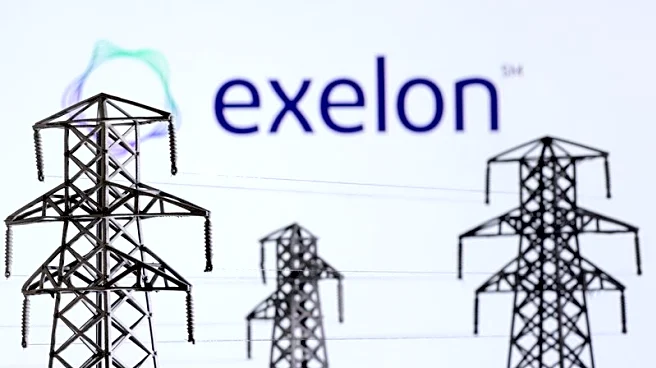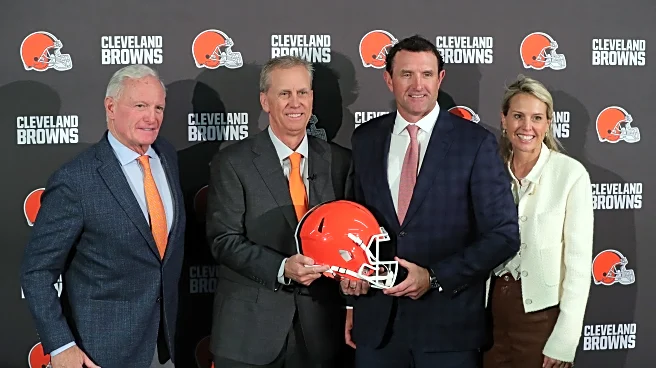What's Happening?
The U.S. government shutdown is set to become the longest in history after the Senate failed to pass a short-term funding bill. The shutdown, now in its 36th day, surpasses the previous record set in early 2019. The impasse is primarily due to disagreements
over enhanced tax credits for insurance premiums under the Affordable Care Act. Democrats demand these subsidies be addressed in any funding resolution, while Republicans refuse to negotiate under shutdown conditions. The Senate's narrow Republican majority requires Democratic support to pass any measure.
Why It's Important?
The shutdown's extension threatens to increase health care costs for millions of Americans if the insurance premium subsidies expire. The political stalemate underscores the challenges of bipartisan cooperation in addressing critical issues. The shutdown's impact on federal services and employees is significant, with potential long-term effects on public trust and economic stability. The situation highlights the complexities of legislative negotiations and the influence of political agendas on governance.
What's Next?
Some Republicans express optimism that the shutdown could end soon, suggesting Democrats may be more willing to negotiate after breaking the shutdown record. However, Democrats remain skeptical about reaching a compromise, citing a lack of willingness from Republicans to ensure health care insurance guarantees. The ongoing negotiations and public pressure may eventually lead to a resolution, but the timeline remains uncertain.
















